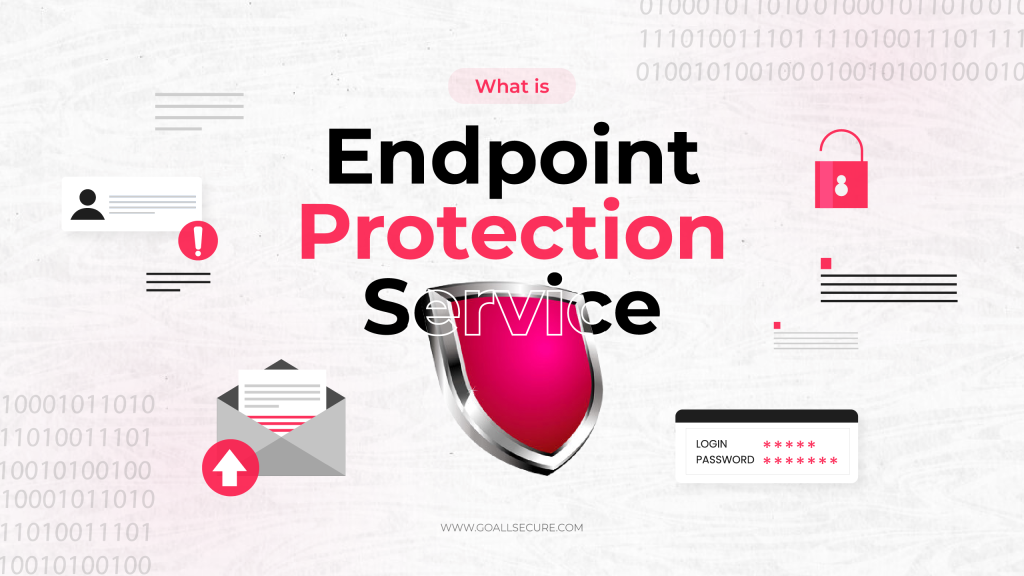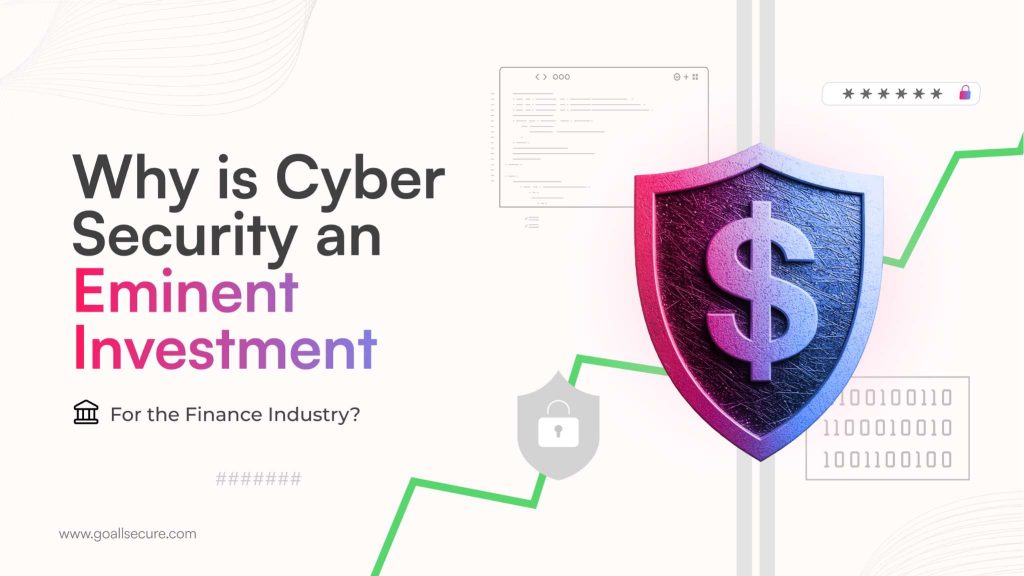The finance industry is the backbone of the global economy. These institutions provide credit, facilitate transactions, and allow people and organisations to invest and accumulate money; they are vital for day-to-day chores. Today, financial services are easier to obtain and use thanks to the digital revolution. Digital banking, online investing platforms, electronic payment systems, and other internet-based financial services have all been made possible by technological advancements. However, the move to digital platforms has also brought new difficulties, especially about cybersecurity. Because they handle so much money and sensitive information, financial institutions are a prime target for cybercriminals. In this blog, we will detail cybersecurity in the financial sector. It will also cover some common cyberattacks on financial institutions, the sorts of cybersecurity solutions available, and the significance of cybersecurity in the industry.
What Is Finance Security?
The term finance security is made up of two words: finance and security. Security here refers to cybersecurity, and the term finance encompasses banks, credit card firms, insurance companies, consumer financing companies, stock brokerages, investment funds, and some government-sponsored organisations. Because they handle enormous volumes of sensitive data and significant financial transactions regularly, financial institutions are often the focus of hackers. Finance security is all about preventing financial cyberattacks, guaranteeing the safety of online and mobile banking platforms, and shielding internal networks and databases from unwanted access. Security initiatives under finance security aim to prevent financial theft, data breaches, and other cyberattacks that could compromise a company’s security and credibility. Finance security, often known as financial cybersecurity, is the process of defending financial organisations and their customers against online attacks. This includes a wide range of actions meant to protect sensitive financial data and systems’ availability, confidentiality, and integrity.
The Strategic Importance of Finance Security
As fintech and digital banking have grown in popularity, the financial industry has become increasingly intertwined. Although this interconnectedness makes the industry more accessible and efficient, it also makes it more vulnerable to cyberattacks. Because the finance sector contains a large amount of valuable financial data and assets, it is a prominent target for cybercriminals. Cybercriminals have long found the financial sector to be a profitable target, and the industry’s digital revolution has amplified the threats.
The success of the financial sector depends on cybersecurity, which safeguards private client information, guarantees the accuracy of financial transactions, and verifies regulatory compliance. Financial institutions must be proactive in developing and maintaining their cybersecurity safeguards since cyber threats are always evolving. Strict rules about information systems security and data protection apply to the banking industry. By investing in cybersecurity, financial players make sure that regulations like the DORA Regulation and the RGPD, or the PCI DSS standards for card payments, are followed. These requirements frequently oversee risk assessments, data security measures, strong procedures for protecting and preserving client data, ongoing system monitoring, and incident reporting. Failure to do so may lead to significant monetary losses, harm to one’s reputation, and legal ramifications.
Benefits of Investing in Financial Security
- Protection of sensitive personal and financial information for customers
- Prevents unauthorised access through encryption, firewalls, and secure access controls
- Defend against identity theft and fraud
- Real-time monitoring to dodge financial loss
- Maintaining customer trust & reputation
- Adhering to strict data protection standards and other regulatory requirements
- Ensures continuity of essential financial services
- Protects critical infrastructure
- Enables quick recovery and uninterrupted customer service
Major Security Threats Targeting Financial Institutions Today
Cyber threats have changed dramatically as financial institutions continue to embrace digital transformation. The precious data and financial assets of banks are the target of numerous sophisticated cyberattacks. Maintaining the integrity of financial services and creating effective protection methods require an understanding of these frequent cyberattacks. The most common cyber threats that the finance sector faces are mentioned below.
Phishing Attacks
One of the most common cyber threats to the financial services industry is phishing attacks. In order to fool staff members or clients into disclosing private information, these attacks usually entail sending phoney emails or communications that seem to be from reliable sources, including banks or financial institutions. The data collected may consist of financial information, personal identity numbers, or login credentials.
Ransomware Attacks
Financial services are now at serious risk from ransomware attacks, in which thieves encrypt an organisation’s data and demand a payment to unlock it. These attacks have the potential to render critical systems inoperable, leading to significant financial losses and damaging the institution’s reputation.
Insider Threats
People who work for the company and abuse their access to confidential data or systems are considered insider risks. This can apply to workers, subcontractors, or business associates. Because financial services have access to vast amounts of sensitive financial data, insider threats are especially dangerous in this industry.
Advanced Persistent Threats (APTs)
APTs are focused, protracted attacks in which the attackers penetrate a network and gradually take data without being discovered. These sophisticated attacks target financial institutions because of their abundance of sensitive data.
Mobile Banking Threats
Cybersecurity risks aimed at mobile platforms have increased in number with the growing use of mobile banking. These risks include using banking app vulnerabilities, intercepting data over unprotected Wi-Fi networks, and phishing attempts (smishing) that are specific to mobile devices.
Distributed Denial of Service Attacks (DDoS)
The finance industry is seriously threatened by DDoS attacks, which try to overload systems and interfere with service availability. These attacks have the potential to seriously disrupt operations and divert attention from more serious ones.
These are just a few prominent examples of threats faced by the financial industry. Some other cyber threats are SQL injections, local file inclusion, bank drops, cross-site scripting, OGNL Java injections, supply chain attacks, and the list is endless.
Comprehensive Security Measures to Achieve Finance Security
The protection of financial institutions’ sensitive data and information is becoming increasingly challenging as cyber attacks grow more complex. In order to adequately safeguard financial institutions, implementing several best practices is crucial. Here are some comprehensive security measures to achieve financial security:
Multi-Factor Authentication (MFA): Implementing an MFA policy on all endpoints, including mobile devices, renders threat actors defeated in their pursuit of compromising privileged credentials. This is a crucial step for financial firms to actively stop the theft of sensitive information. Updated firewalls can detect and prevent attempts at malware insertion.
Attack Surface Management: The likelihood of a successful data breach, both internally and across the vendor network, will be greatly decreased by an attack surface management solution that can identify data leakage. ASM helps organisations identify their vulnerabilities and fix them before an attacker takes advantage.
Regular Data Backups: In the event of a ransomware attack, having a clean system backup on hand will enable you to resume business operations.
Penetration Testing & Vulnerability Assessments: Frequent penetration tests and security audits are crucial procedures that call for regular evaluations of your security infrastructure to find weaknesses. Penetration testing assesses the efficacy of your security measures by mimicking real-world attacks and highlighting areas that require improvement.
Incident Response Plan: A detailed plan for handling cyber threats that are most likely to affect your company is known as a cyber threat detection and response strategy.
Programs for Employee Awareness and Education: Employees should receive training on data protection, safe internet practices, and cyber threats. Regular staff training sessions make it simple to identify some cyber threats and raise employee awareness of their responsibilities in maintaining the organisation’s cybersecurity.
Strengthening Your Financial Institution’s Security
A successful and secure banking system requires financial investments in cybersecurity measures. By investing in cybersecurity awareness, banks can stay up-to-date with the latest developments and insights surrounding cybercrime. By training staff to recognise and fend off cyberattacks, financial institutions strengthen their systems. Cyberattacks endanger more than just your customers and data. A significant hack that affects several companies could turn into a full-scale financial emergency. If financial services organisations wish to adhere to legal requirements, safeguard sensitive client data, and guarantee that financial transactions are carried out securely, cybersecurity is essential.
Some of the top financial cybersecurity solutions are available for financial institutions through GoAllSecure. We prioritise ransomware prevention, email security, and staff training to provide all the cyber defences you need to stay competitive. Our goals is to protect your digital assets from emerging and changing threats. We employ comprehensive protection at every stage of the threat lifecycle. Our knowledge and ability to act quickly are beneficial in reducing cyber risk and protecting you. Do you need assistance enhancing security of your business? Contact GoAllSecure at +91 85 2723 7851 or +44 20 3287 4253 to learn more about our finance security solutions.

















 TRAVEL & HOSPITALITY
TRAVEL & HOSPITALITY HEALTHCARE
HEALTHCARE RETAILS & ECOMMERCE
RETAILS & ECOMMERCE BANKING & FINANCIAL
BANKING & FINANCIAL AutoMobile
AutoMobile MANUFACTURING
MANUFACTURING FOOD
FOOD EDUCATION
EDUCATION



